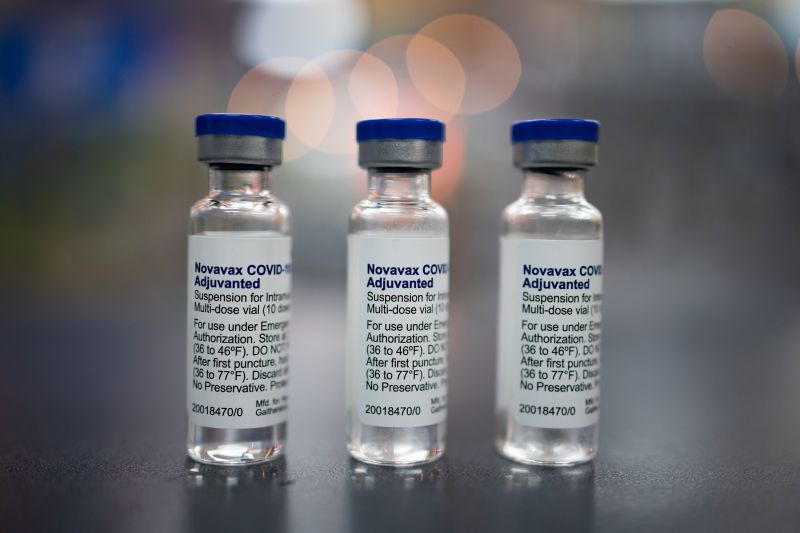The US Food and Drug Administration is changing the way it approves Covid-19 vaccines for Americans — a move that will limit future vaccines to older Americans and people at higher risk of serious Covid-19 infection.
The agency is changing the standard of evidence required for Covid-19 vaccine approval in the US, Dr. Vinay Prasad, the new director of the FDA’s Center for Biologics Evaluation and Research, and FDA Commissioner Dr. Marty Makary, said in an editorial published Tuesday in the New England Journal of Medicine
The change means that Covid-19 shots will likely be available in the fall for adults ages 65 and older and those with underlying conditions that may put them at higher risk of a Covid-19 infection, but not for everyone who was previously eligible for an updated shot. Nearly three-quarters of Americans age 6 months and older have an underlying medical condition that puts them at higher risk, according to the US Centers for Disease Control and Prevention.
The change, which was already being studied by experts that advise the CDC on its vaccine recommendations, will more closely align the United States with Covid-19 vaccine recommendations in the UK, Canada and Australia.
Millions of healthy adults and kids will likely lose access to updated vaccines under the new criteria. Prasad and Makary say there’s not enough evidence that healthy kids and adults get clinically meaningful benefit from regular Covid-19 shots. They want to see placebo-controlled trials, particularly in adults ages 50 to 64, before recommending the shots for other groups.
Dr. Noel Brewer, a professor of public health and health behavior at the University of North Carolina at Chapel Hill, said he supports the change.
“The proposed policy moves the US in line with other countries. This global view of public health is a welcome development,” said Brewer, who sits on the CDC’s Advisory Committee on Immunization Practices, and was part of the working group mulling the change to Covid vaccine recommendations
But he and other experts say they’re still worried about the youngest children, those under age 2, who have high rates of hospitalization from Covid-19.
Dr. Paul Offit, director of the Vaccine Education Center at the Children’s Hospital of Philadelphia and a member of FDA’s independent advisory group on vaccines, says he disagrees with the underlying premise of the new framework, which is that our Covid-19 vaccine recommendations haven’t been based on good evidence.
“We have been using an evidence-based approach to Covid-19 vaccination, but they kind of swoop in and believe that for the first time, we’re going to get, as they say, ‘gold standard’ data, robust data, for the first time, because according to them, we don’t have that, but we do have that,” Offit said.
“That’s why we’ve made good decisions about the vaccine. That’s why that vaccine is remarkably safe. I mean, the mRNA vaccines are remarkably safe.”
The editorial says that going forward, Covid-19 vaccines for people ages 65 and older and those 6 months of age and older with underlying health conditions that put them at higher risk from Covid-19 infections will be approved after pharmaceutical companies can demonstrate that they create protective antibody concentrations in people.
These types of studies are called immunobridging studies. They’re typically done in a smaller number of people, and importantly, they can be done quickly so vaccine manufacturing can ramp up in time to have large numbers of shots ready for an expected wave of illness, usually over the fall and winter.
This is largely how seasonal flu vaccinations are approved each year in the US, and it’s the way FDA has been approving Covid-19 vaccines for the past few years.
For everyone else, the FDA will only approve vaccines after studies that prove the shots can prevent symptomatic Covid-19 better than a placebo. The FDA will also consider several secondary outcomes, including severe illness, hospitalization and death.
The new plan doesn’t consider other impacts of Covid-19 infections, such as long Covid. Studies have shown that vaccination may cut the risk of developing long Covid by somewhere between 25 %to 60%.
Prasad and Makary say the new policy balances the need to swiftly approve vaccines to have them ready by the fall for the most vulnerable adults and children, with the need for more evidence before offering them to others.
What’s more, they say millions of Americans under the age of 65 will still qualify to get a Covid-19 vaccine if they want one if they have any of a broad range of health conditions identified by the CDC as putting a person at high risk of severe disease from Covid-19.
“Estimates suggest that 100 million to 200 million Americans will have access to vaccines in this manner,” the FDA officials wrote.
Prasad and Makary say their goal in requiring more evidence for other groups is to restore public trust in vaccines.
They point out that for the past two seasons, less than 25% of Americans have received a Covid-19 shot, including less than 10% of kids and less than 50% of adults over the age of 75.
They say broad Covid-19 vaccine recommendations and mandates during the pandemic eroded public trust and caused falling rates for other types of vaccines, too, such as the measles, mumps and rubella vaccine.
This is a breaking news story and will be updated.

